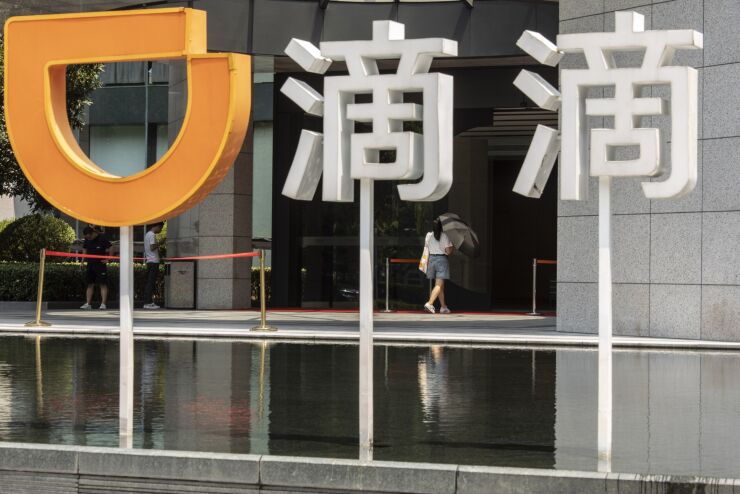A landmark audit deal struck a year ago that saved hundreds of Chinese companies in the U.S. from being booted off American stock exchanges has done little to revive the flow of initial public offerings between the two countries.
This week marks the first anniversary of an
Even with U.S.-listed Chinese firms remaining in place and a handful of new entrants trying their hand, not one Chinese IPO raised more than $200 million so far this year. It's a far cry from 2021 when a dozen companies each raised more than that figure, led by Didi Global Inc.'s ill-fated $4.4 billion listing, according to data compiled by Bloomberg.
When Beijing opened a
By the time signs
Chinese startups
For many Chinese startups seeking a blockbuster first-time share sale, the prospect of a US listing is still their best hope.
At least 37 Chinese firms filed for a U.S. listing this year, including Geely-backed electric vehicle maker Zeekr Intelligent Technology Holding Ltd., MRO procurement service platform ZKH Group and Tencent Holdings Ltd.-backed pet clinic operator New Ruipeng Pet Group, according to a Bloomberg Intelligence report in November.

Zeekr is exploring the possibility of a planned U.S. IPO in February, Bloomberg News has
"U.S. IPOs are still favored because of less stringent profitability requirements than Hong Kong," Bloomberg Intelligence analyst Lu Yeung said via email. What's more, many Chinese IPO candidates raised money from U.S. private equity and venture capital firms that prefer an overseas exit, he added.
Toned down curbs
Arguably the biggest hurdle left for prospective U.S. IPO candidates to clear is the Chinese regulatory environment, which though opaque, has brightened considerably. China Securities Regulatory Commission, the country's securities regulator, toned down
"Our conversations have been very positive and profitable with the CSRC in terms of the way that they want to approach it, and the message to us is that they are not trying to prevent companies who choose to list overseas from listing overseas," said Robert McCooey, vice chairman and head of APAC listings at Nasdaq Inc.
Chinese companies have got through the review, and the exchange operator is cautiously optimistic that will continue, Nasdaq's McCooey said.
"If the window is open, we will see deals," said Gary Dvorchak, managing director of the Blueshirt Group. With the geopolitical risk, most of the potential buyers of U.S.-listed Chinese IPOs are primarily region-specific funds, which makes for a smaller pool of investors, he added.
"They won't get the valuations that their U.S. peers will get, but it will be good enough for them to sell stocks and raise capital," Dvorchak said.
Much hinges on whether the détente between the two countries can persist. Last month, the Public Company Accounting Oversight Board announced hefty penalties against the Chinese and Hong Kong affiliates of PwC and a third Chinese auditor. Should either country move to withdraw cooperation, any resumption in cross-border IPOs would likely be the first victim.





